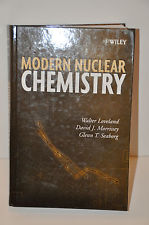Nuclear Chemistry
A.G. Denkova A.G.Denkova@tudelft.nl
R.M. de Kruijff R.M.deKruijff@tudelft.nl
Contact Hours / Week: 8
Education Period: 2
Start Education: 2
Exam Period: 2
Course Language: English
Venue: Reactor Institute Delft
Course Contents:
Nuclear Chemistry is designed to give students a more in depth knowledge of nuclear- and applied radio-chemistry. It comprises fundamental issues as well as application of nuclear- & radio-chemistry. This course has 8 general topics:
Topic 1: Nuclear chemistry fundamentals: nuclear decay, nuclear properties, nuclear reactions and kinetics of nuclear decay and interaction with matter
Topic 2: Production of radionuclides
Topic 3: Nuclear Analytical Techniques
Topic 4: Detection of radiation
Topic 5: Radiation therpay
Topic 6: Radiotracers
Topic 7: Radiation Biology
Topic 8: Radiochemical separation techniques
This is a 6 ECTS course composed of ~ 45 lecture hours, ~115 self-study hours, graded homework exercises, a radiation protection course of 8 hours, and a final examination of 3 hours.The radiation protection course is not graded but a pass is obligatory. Nuclear Chemistry is part of the master program of Applied Sciences and is also part of the specialization “Nuclear Science and Engineering of both the Master Curriculum of Applied Physics and Chemical Engineering”. This implies that students with different background (i.e. both physics and chemistry students) follow this course.
Learning goals:
- Identify the factors that affect nuclear stability
- Explain the different kinds of radioactive decay
- Interpret a radioactive decay series
- Distinguish between different radiation production routes
- Be able to calculate the specific activity of the produced radionuclides
- Be able to use the principle of Nuclear analytical techniques (Neutron Activation Analysis and Mossbauer Spectroscopy) to analyze samples
- Distinguish between the different type of detectors and explain why for a particular decay a particular detector is suitable
- Calculate detector efficiency
- Describe which properties of radionuclides are important in radionuclide therapy and explain why
- Design a nano-carrier for radionuclide therapy
- Be able to apply radiotracer principles
- Identify and explain the most relevant radiation-induced effects on living matter
- Identify the best separation techniques for a specific radionuclide
Educational Method:
Oral lectures
Literature and Study Materials:

This is available to all students as an online resource from the TU Delft library.
Grading will be based on:
Homework assignments and final exam